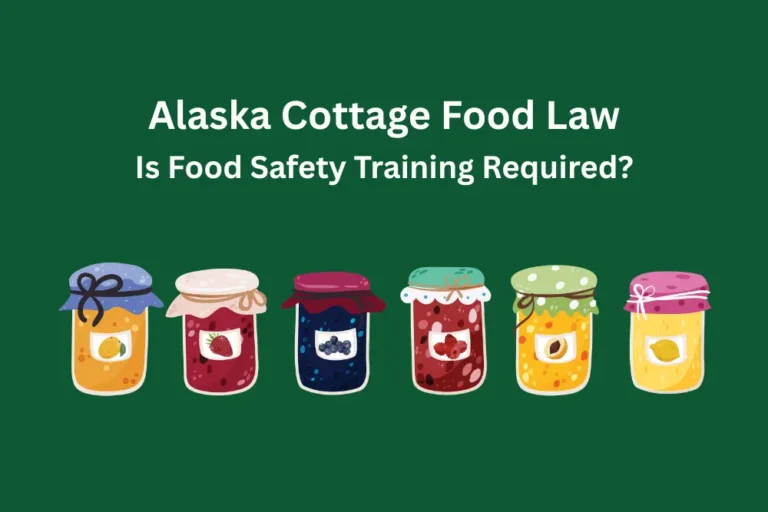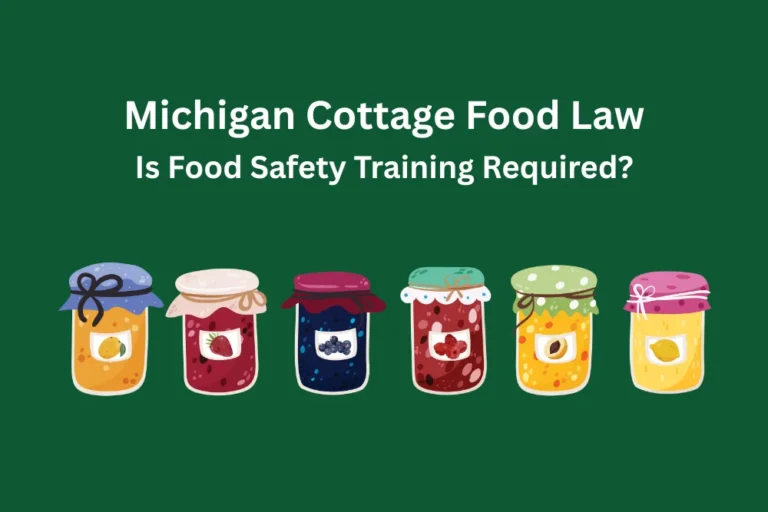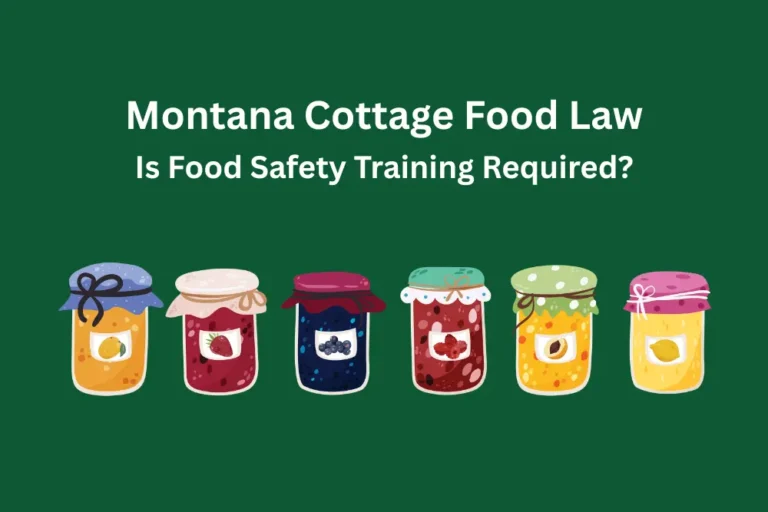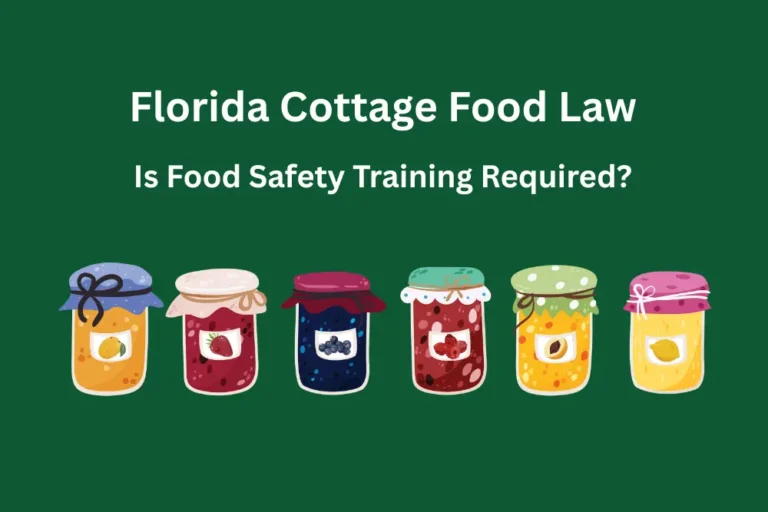North Dakota Cottage Food Law: Do You Need Food Safety Training?
Article Summary
Selling homemade food in North Dakota? The cottage food law doesn’t require food handler training, but getting your card can still give your business an edge. This quick video explains why it’s worth it, what you’re allowed to sell, and how to get your food handler card online with FoodSafePal.
Selling homemade food can be a great way to share your products and earn extra income, but every state has its own rules you need to follow.
Each state sets its own cottage food laws that define what you can make, where and how you can sell it, and whether you need food safety training.
This article explains North Dakota’s cottage food law and whether you need food safety training to sell homemade food.
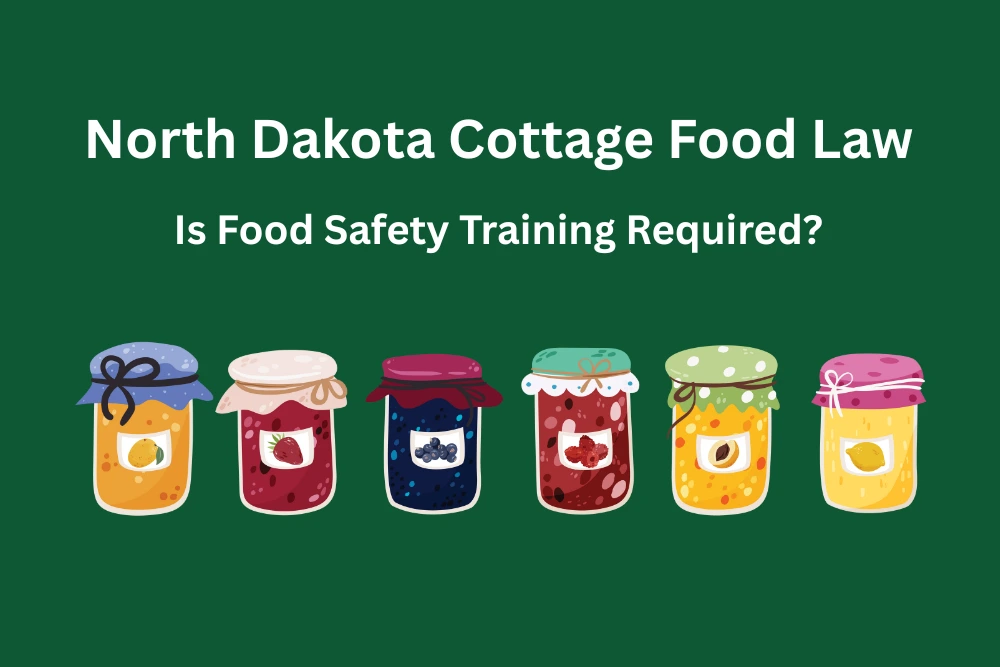
North Dakota cottage food production
North Dakota allows you to sell homemade foods directly to consumers without licenses, permits, or inspections from the state or local health department.
You can sell a wide range of foods, including baked goods, jams, jellies, and other homemade food and drink items. Sales must be made directly to the person who will eat the food, and the food must be for use at home. You can sell from your home kitchen, at farmers markets, farm stands, or other events, and you can also deliver your products.
Here are examples of allowed foods:
- Baked goods like breads, cookies, cakes, muffins, brownies, and scones
- Jams, jellies, and fruit preserves
- Candy, fudge, and caramel treats
- Snack mixes, granola, popcorn, and trail mix
- Dried herbs, spices, and teas
- Whole, unprocessed fruits and vegetables
- Other shelf-stable homemade foods and drinks that are safe at room temperature
You can also sell foods that require refrigeration for safety, like cheesecakes, cream pies, custards, pumpkin pies, and baked goods with cream, custard, or cream cheese fillings, as long as they are labeled with safe handling instructions and a statement saying they were transported and kept frozen.
There are a few restrictions. You can’t sell uninspected meat products, and you can only sell poultry if you raise, process, and sell no more than 1,000 of your own birds each year. You also can’t sell your products to restaurants, grocery stores, or other food establishments.
Summary
North Dakota lets you sell a wide variety of homemade foods directly to consumers without inspections or permits, including some refrigerated items if they are properly labeled.
Do you need food safety training to sell homemade food in North Dakota?
North Dakota does not require you to complete food safety training or earn a North Dakota food handler card to sell homemade food. But even though it is not required, it can still benefit your business.
When customers buy from you, they want to feel confident that the food they are bringing home was made and handled safely. A food handler card shows that you take their health and your business seriously.
Food safety training can also open more selling opportunities. Some farmers markets and event organizers may ask for proof of food safety knowledge even if the law does not require it. Liability insurance providers may also require or give discounts for vendors who have completed training.
FoodSafePal’s ANSI-National Accreditation Board (ANAB)-accredited food handler course meets national food safety standards and takes about 90 minutes to complete. Once you pass, you get immediate access to your food handler card and certificate, with an option to order a printed version to display at markets or keep in your records.
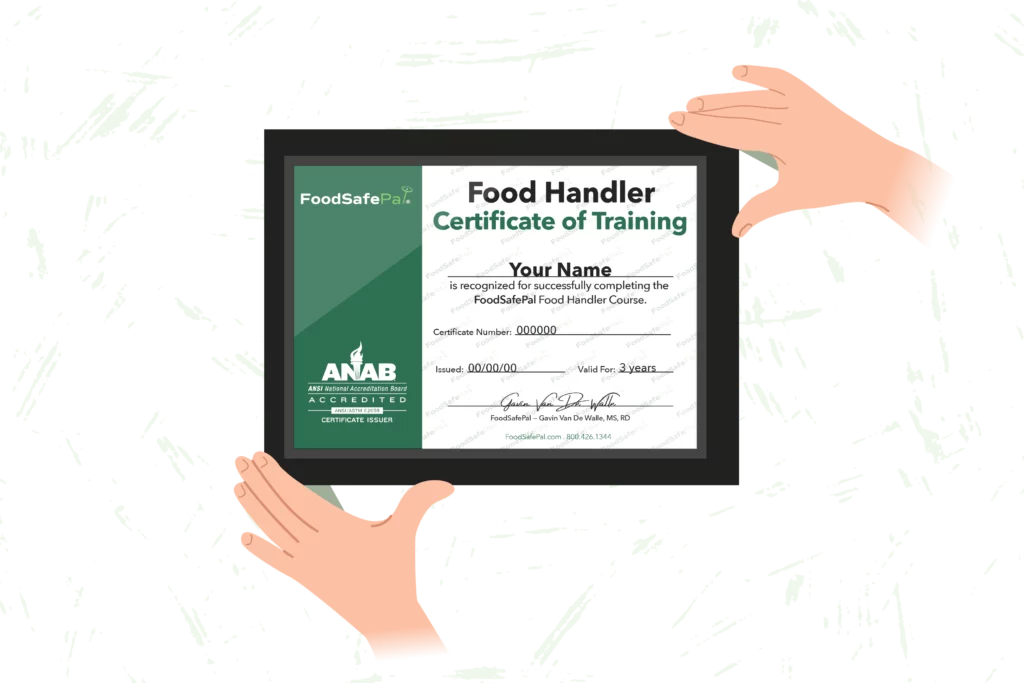
Get Your North Dakota Food Handlers Card
Instant certificate. 100% online in about 90 minutes.
Summary
Food safety training is not required in North Dakota, but earning a food handler card can help build trust with customers, expand your sales opportunities, and make it easier to get insured.
Labeling requirements
North Dakota has very simple labeling rules, but you need to follow them closely.
Every product you sell must either have a label or be displayed with the following statement: “This product is made in a home kitchen that is not inspected by the state or local health department.”
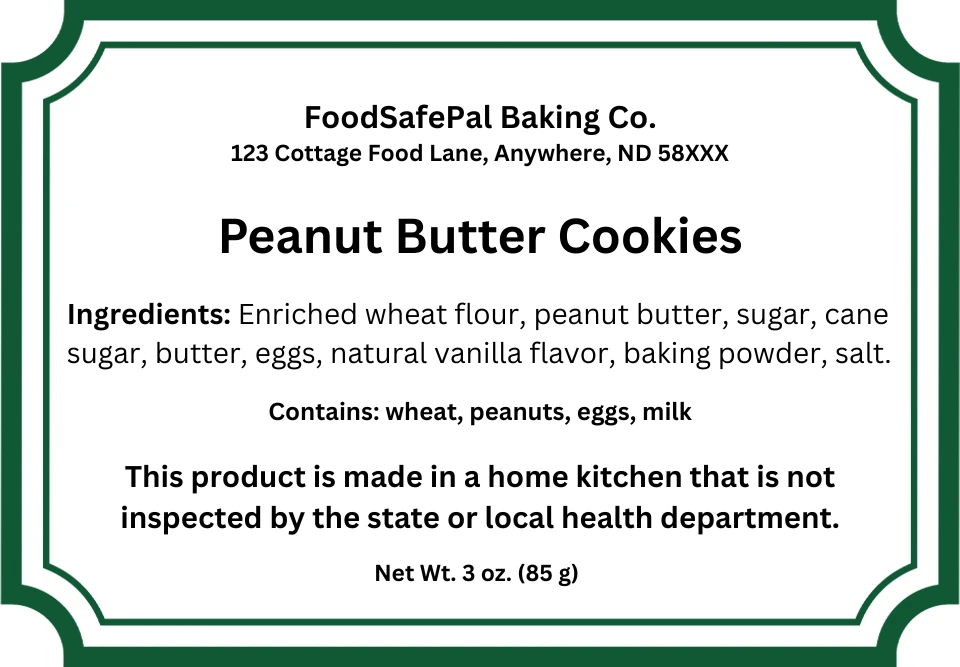
If you sell any products that require refrigeration, such as cheesecakes, cream pies, custards, or baked goods with cream, custard, meringue, pumpkin, or cream cheese fillings, you must also include:
- Safe handling instructions
- A statement that the product was transported and kept frozen
While it’s not required, it’s best practice to include an ingredient list in descending order by weight and to clearly disclose any major food allergens such as milk, eggs, wheat, soy, peanuts, tree nuts, fish, or shellfish. This helps protect your customers and builds trust in your products.
Summary
North Dakota requires all cottage foods to display a consumer advisory, and perishable items must also include safe handling instructions and a frozen-transport statement. Including ingredients and allergens is optional but strongly recommended.
The bottom line
North Dakota’s cottage food law gives you the freedom to sell many types of homemade foods directly to consumers without licenses, permits, or inspections, as long as the food is for home use.
Food safety training is not required, but completing an ANAB-accredited food handler course from FoodSafePal can build trust, open new sales opportunities, and show your commitment to making safe, high-quality food.
All products must display the required consumer advisory, and perishable items must also include safe handling instructions and a frozen-transport statement.

Get Your North Dakota Food Handlers Card
Instant certificate. 100% online in about 90 minutes.


